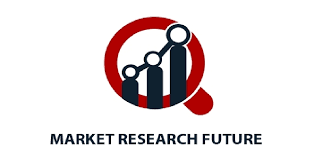South Korea Seed Treatment Market Revenue Industry Growth Trends Forecast 2024-2032)

South Korea Seed Treatment Market: Embracing Technology for Enhanced Crop Protection
South Korea's agricultural sector is characterized by its high-tech approach and commitment to innovation, and the seed treatment market is no exception. Seed treatment involves the application of various chemicals or biological agents to seeds before planting to protect them from pests, diseases, and environmental stressors while promoting healthy growth and improved yields.
In South Korea seed treatment market is driven by several key factors, including the adoption of precision agriculture technologies, increasing demand for high-quality seeds, and the need for sustainable agricultural practices. With limited arable land and a shrinking farming population, South Korean farmers are embracing precision agriculture to optimize resource use and improve crop yields.
One of the significant drivers of growth in the South Korean seed treatment market is the increasing adoption of integrated pest management (IPM) strategies. IPM emphasizes the use of multiple tactics, including seed treatments, biological control agents, and cultural practices, to manage pests effectively while minimizing reliance on chemical pesticides. Seed treatments play a crucial role in IPM by providing early protection against pests and diseases, reducing the need for foliar sprays later in the growing season.
Moreover, there is a growing demand for seed treatments that offer multiple benefits, such as insect control, disease resistance, and enhanced nutrient uptake. Multi-functional seed treatments that combine multiple active ingredients in a single application are gaining popularity among South Korean farmers, as they provide comprehensive protection against a wide range of threats.
In addition to chemical seed treatments, there is increasing interest in biological seed treatments derived from natural sources such as beneficial microbes and plant extracts. Biological seed treatments offer environmentally friendly alternatives to chemical pesticides, with minimal impact on non-target organisms and ecosystems. They are particularly well-suited for organic farming systems and are gaining traction among South Korean farmers seeking sustainable agricultural solutions.
Collaboration between seed treatment manufacturers, seed companies, research institutions, and government agencies is driving innovation and promoting the adoption of advanced seed treatment technologies in South Korea. By leveraging expertise from multiple sectors, these collaborations facilitate the development of tailored solutions to address specific challenges faced by South Korean farmers, such as emerging pest and disease threats and changing environmental conditions.
Market Segmentation
The seed treatment market is segregated into different market segments based on application technique, type, function, and crop type. For a comprehensive analysis of the market, the application technique, type, function, and crop type segments are further split into smaller segments. The type segment is categorized into chemical and non-chemical (biological and physical). Furthermore, based on application technique, the global market is also segmented into dressing, coating, pelleting and others. Based on the market segmentation analysis, the report covers market forecasts. On the basis of function, the global market is split into sub segments including seed protection and seed enhancement. The crop type segment is categorized into cereals & grains, fruits & vegetables, oilseeds & pulses, and others.
Growing investments across different sectors will support the market growth from 2022 to 2030. As per the market research report, the global market for seed treatment is anticipated to grow at a healthy rate across all the application technique, type, function, and crop type segments. However, the presence of active threats such as supply and demand gap could hamper the market growth. Business activities across seed treatment have also been examined and studied by seed treatment industry’s experienced analysts. The seed treatment market research report covers findings with predictions and forecasts till 2030.
Industry News
Trunemco, a global nematode control seed treatment approach with a first-of-its-kind proprietary combination of a microorganism and a biochemical to protect against a wide range of damaging nematoda organisms, was purchased by Nufarm today. Trunemco will be produced and commercialised in a range of main global markets, with a launch in the United States planned this year, pending EPA approval. This BASF-developed proprietary technology is in line with Nufarm's growth plan, which includes both new and advanced crop safety technologies as well as premium fundamental solutions.
About US
At Market Research Future (MRFR), we enable our customers to unravel the complexity of various industries through our Cooked Research Report (CRR), Half-Cooked Research Reports (HCRR), Raw Research Reports (3R), Continuous-Feed Research (CFR), and Market Research & Consulting Services. MRFR team have supreme objective to provide the optimum quality market research and intelligence services to our clients. Our market research studies by products, services, technologies, applications, end users, and market players for global, regional, and country level market segments, enable our clients to see more, know more, and do more, which help to answer all their most important questions. To stay updated with technology and work process of the industry, MRFR often plans & conducts meet with the industry experts and industrial visits for its research analyst members.
Contact us:
Market Research Future (part of Wantstats Research and Media Private Limited),
99 Hudson Street,5Th Floor, New York, New York 10013, United States of America
Sales: +1 628 258 0071 (US) +44 2035 002 764 (UK)
Email: Sales@marketresearchfuture.com
- Art
- Causes
- Crafts
- Dance
- Drinks
- Film
- Fitness
- Food
- Jocuri
- Gardening
- Health
- Home
- Literature
- Music
- Networking
- Alte
- Party
- Religion
- Shopping
- Sports
- Theater
- Wellness
